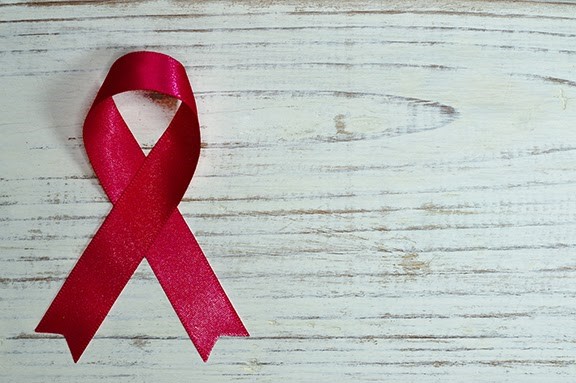Tag: Cosmetic Dentist Roselle IL
Should I Be Concerned About A Thumb Sucking Habit? | Roselle IL Cosmetic Dentist
Thumb sucking is one of the most recognizable behaviors found in children. Sucking is a natural reflex and infants and young children may use thumbs, fingers, pacifiers, and other objects on which to suck. It may make them feel secure and happy, or provide a sense of security at difficult periods. Since thumb sucking is relaxing, it may even encourage sleep. Studies found by our dentist in 60172 have proposed that as many as 90% of children have engaged in this type of activity in their lives. We have even seen that thumb sucking can begin in the mother’s womb during pregnancy. It’s natural, safe, and can be quite helpful to parents, as their baby learns to soothe themselves from time to time.
Whether this oral fixation is satisfied with a thumb or the commonly used pacifier, most children discontinue this practice before long. The American Academy of Pediatric Dentistry states that most children stop thumb sucking on their own between the ages of 2 and 4.
Once your baby’s first set of teeth are in and thumb sucking persists, there is a chance that this habit could push the teeth slightly forward. Fortunately, this will in no way affect the placement of the adult teeth or add to the cost of your child’s future dental bills. Thumb sucking, even in toddlers, is considered normal. It does not mean there is anything wrong with your child and that they should feel embarrassed or ashamed. Even the most persistent thumb sucker ordinarily stops on their own by the time toddlerhood has ended.
Thumb sucking infrequently continues past the age of four. This is usually found to be the result of too much attention or negative reinforcement given to the habit in previous years. Beyond this age, thumb sucking can begin to impact the alignment of the adult teeth, so it is best your child shed the habit sooner rather than later.
How do you help them with this? Don’t reprimand them because of it, don’t remove the thumb from their mouth and don’t mention it. This is where their growing awareness and social cues come in handy. As your child begins to notice that the kids around them aren’t sucking their thumbs anymore, they won’t want to either. They will also start to discover other skills or items to give them comfort and security. Peer pressure becomes a much greater deterrent than a parent’s disapproval.
What Can I Do to Support my Child Through Thumb Sucking?
- Insecurity often causes anxiety in children and this may lead to thumb sucking. Instead of reprimanding them, try to focus on what is making them feel anxious.
- Parents who provide comfort and positive reinforcement to their children will see a less likelihood of thumb sucking.
- Take note of the times your child tends to suck on their thumb and create diversions during these occasions.
- Ask your child’s dentist to speak with them about the impact thumb sucking will have on their mouths.
- Place a band-aid or a sock on your child’s thumb as a reminder to avoid putting their thumb or fingers in their mouth.
Thumb sucking can be a troublesome habit for parents, mostly when it feels like your child is the only one still engaging in the behavior. Permitting your child to find other ways of comforting themselves is more helpful to them in the end. If you have any other questions on how to improve your child’s oral health, please give our Roselle, IL dental office a call. To learn more or to schedule an appointment, visit our website or give us a call today.
Healthy Smile, Healthy Body | Cosmetic Dentist Roselle
Good oral hygiene habits are essential to prevent tooth decay and gum disease. What you might not know is that research has found the health of your mouth actually mirrors the overall condition of your body. According to the Academy of General Dentistry, there is a direct relationship between gum disease and many serious health conditions, including heart disease, stroke, and diabetes. The good news is, research also shows that good oral health may actually help prevent certain diseases from occurring.
Understanding the mouth/body connection
Poor oral habits can cause bacteria to build up on your teeth, making your gums more prone to disease and infection. When that happens, your immune system goes to work attacking the infection, leading to inflammation and gum disease, also known as periodontitis. Left untreated, periodontitis and chronic inflammation can wreak havoc on the rest of your body, leading to a host of health problems. Thankfully, this “worst-case-scenario” is easily preventable. Here’s what you can do to elevate your oral hygiene habits and keep unwanted health concerns at bay:
- Brush twice a day for at least two minutes using a soft-bristled brush. Be sure to choose a toothbrush that is the right size for your mouth so you can reach back teeth easily. If you have any questions about which toothbrush we recommend for you, you can ask our office during your appointment.
- Remember to replace your toothbrush every three or four months.
- Choose an American Dental Association-approved fluoride toothpaste to keep teeth free from decay.
- Floss daily to remove tooth decay-causing bacteria that tend to linger between teeth. Regular flossing also helps remove plaque under the gum line and minimize your risk of contracting gum disease.
- Eat a healthy diet that limits sugary beverages and snacks.
- Avoid cigarettes and other tobacco products, which are known to contribute to gum disease and oral cancer.
In addition to maintaining good daily oral health habits, seeing your dentist regularly is one of the best ways to keep your mouth – and your body – healthy. These exams allow our dentist in Roselle to monitor any changes to your teeth and gums and make recommendations that will help you avoid future health problems. Call our Roselle, IL dental office today to schedule an exam.
Easy Flossing Alternatives to Preserve Your Healthy Smile | Dentist in 60172
If there is one recommended dental habit that many people struggle to embrace, it’s flossing. Whether you find traditional thread flossing challenging to maneuver, messy, or just time consuming, you are not alone. However, The American Dental Association (ADA) and our office want you to be able to floss regularly and thoroughly. Consider these effective alternatives to remove unwanted plaque from the places your toothbrush simply can’t reach.
1.) Disposable Floss Pick
These convenient little tools have plastic handles and Y-shaped prongs that come pre-threaded with floss. No measuring, snipping or finger threading required. Ideal for travel and on-the-go use, simply grab the handle, insert the floss between your teeth, and when done, toss the tool away.
2.) Non-Disposable Floss Picks
Fashioned with a longer handle than their disposable counterparts, these picks may be an excellent option for patients with small mouths and/or crowded teeth. They also help to make reaching back teeth a breeze.
3.) Water Flossers
Electronic flossers use streams of pressurized water to clean between your teeth. There are many different models to accommodate price preferences, and most offer adjustable pressure settings to ensure your comfort during use.
4.) Interdental Brushes
Designed to look like tiny toothbrushes, interdental brushes are especially effective for those who wear braces. They are also a nice option for patients with mobility issues who struggle with traditional flossing. Another plus? Like toothbrushes they can be used repeatedly – simply ask our 60172 dentist when we recommend replacement.
5.) Air Flossers
These high-tech tools use air pressure combined with a small amount of water to keep teeth and gums clean and healthy. Considered to be less messy than their water-based cousins, air flossers offer easy point and click instructions – just aim the flosser between your teeth and a blast of air does the rest.
Keeping the spaces between your teeth and gums free from plaque and tartar is essential to your oral health. Finding tools and techniques that work for you is the first step towards establishing lifelong habits that lead to a lasting, healthy smile. Consider any of these flossing alternatives or call our Roselle, IL dental office for a recommendation. Our team will be happy to evaluate your unique needs to help you find the solution that is right for you.
Facts You May Not Have Known About Oral Cancer | 60172 Dentist
According to The American Academy for Oral Systemic Health, oral cancer claims one American life every hour of every day. Unfortunately, most cases go undetected until it is too late, making the need for regular examinations of even greater importance. Those who are proactive and seek treatment early have the best chance of beating the disease and living a long, healthy life. Below are some facts shared by our dentist in 60172 that you may not have known about oral cancer, including warning signs, trends, and more.
1.) Oral Cancer Affects More Men Than Women
No matter your gender, you should be aware of the very real dangers of oral cancer. While studies conducted by the Oral Cancer Foundation have shown that oral cancer is one the rise among women too, a 2:1 incidence ratio between men and women still remains. This correlation may be due to the fact that, statistically speaking, men smoke and drink more than women. Regardless of your own habits, remain aware of the signs and symptoms and ask your doctor to perform a regular oral exam if they do not already.
2.) Each Year, 450,000 New Cases Are Discovered
As such, it is likely that oral cancer has affected someone in your life. Whether you know someone who has had, or is currently dealing with their own struggle against oral cancer, you should know that they are not alone.
3.) Alcohol and Tobacco Increase Your Risk
Among the many risk factors, your lifestyle choices can have a huge impact on the likelihood of you developing this cancer. It is estimated by the Cancer Treatment Centers of America that roughly 80% of people with oral cancer are heavy smokers, while 70% are heavy drinkers. Add this unfortunate statistic to the list of reasons why you should leave the cigarettes behind.
4.) When Detected Early Enough, Oral Cancer has a Cure Rate of 90%
According to many experts, part of the reason why oral cancer can be so destructive is because it often goes undetected for long periods of time. Don’t overlook or ignore any suspicious new developments in your mouth and call your doctor or oral surgeon as soon as you notice anything amiss.
The best way to overcome oral cancer is to stay informed and catch it early. As something that is important to all dental professionals, we hope you will take this disease just as seriously as we do. We look forward to helping you stay healthy and protecting your oral health throughout your life. If you have any questions call or contact our dental office in Roselle, IL today and we will assist you however we can.
Craze Lines: Not as Crazy as You May Have Thought | Dentist Roselle
If you’ve ever looked in the mirror and seen what appeared to be small cracks on the outside of your teeth, congratulations. You may have craze lines.
First, it’s important to know that these lines are relatively harmless in most cases. Craze lines appear as a natural response to years of normal tooth function. Throughout your life, teeth can take a lot of pressure from normal chewing. If you suffer from bruxism (teeth grinding), or regularly use your teeth as a tool to cut things, these effects may be more severe.
Craze lines can appear on the front or back of your teeth and are common in adult teeth. Usually, they don’t require treatment and are considered by many dental professionals to be simple cosmetic concerns. For instance, if you drink certain beverages or use tobacco, these lines can become stained.
If you have concerns, your doctor can check on your craze lines to see if they are exasperbating any tooth injuries, or seemed to be caused by frequent grinding. The majority of cases have no negative effects. Some studies have explored the possibility that craze lines may increase sensitivity after bleaching treatments, but the results were inconclusive.
If you don’t already have craze lines and want to limit your chances of getting them, it’s important to keep up with your regularly scheduled visits to see our 60172 dentist. While they may be unavoidable for some patients, it’s always a good idea to practice the best possible oral health care.
We are experts in keeping your smile as healthy as possible for as long as you live. If you have any questions about your dental health, please do not hesitate to contact our Roselle, IL dental office. We look forward to hearing from you.
What to Do in Case of Dental Emergency | Dentist in 60172
Accidents always happen. Be sure to know what to do when one arises – it can be the difference of saving a tooth or losing one.
A dental emergency is an injury to your teeth or gums that can be potentially serious. Ignoring one can increase the risk of permanent damage. For all dental emergencies, it is important to contact our office as soon as the injury occurs. Provide detailed information about the injury to your mouth. We will be able to give you instructions on how to care for your mouth in the time before coming to our office. In some instances, our 60172 dentist may recommend emergency care.
Here are some common dental injuries and how to care for them.
Knocked-out tooth
Rinse the tooth with water if it’s dirty and try not to remove any attached tissue fragments. Keep the tooth moist at all times by carefully putting the tooth back in place without forcing it back into the socket. If this is not possible, place the tooth in a small container of milk or in a cup of water that contains a pinch of salt. Contact our dental office as quickly as possible.
Chipped or cracked tooth
Save any pieces if possible. Rinse your mouth with warm water to clean the injured area as well as remove any small tooth fragments. Apply cold compresses to your mouth to keep down the swelling and relieve pain.
Objects caught between teeth
Carefully try to remove the object using floss. If you cannot get the object out, see your dentist. It is important to never use a pin or sharp instrument to remove the object since you may cause injury to your gums or the surfaces of your teeth.
Soft-tissue injuries
Injuries to your tongue, cheeks, gums and lips can result in bleeding. To control the bleeding, rinse your mouth with mild salt water. Apply a moistened piece of gauze or tea bag to the bleeding site for about 15 minutes. You may also use a cold compress to relieve pain. If the bleeding doesn’t stop, contact our dental office.
You can also take simple precautions to avoid dental emergencies:
- When participating in sports, always wear a mouth guard
- Avoid chewing ice, popcorn kernels and hard candy
- Never use your teeth to cut things – use scissors
If you encounter a dental emergency, always contact our Roselle dental office as soon as possible. We can provide you with step-by-step instructions on how to care for your mouth or may ask you to come into the office. If you have any additional dental emergency questions, be sure to contact us.
Top 5 Best and Worst Foods for Your Teeth | Roselle Cosmetic Dentist
When it comes to your oral health, what you should eat is just as important as what you shouldn’t. By limiting certain types of foods and focusing on others, you can set yourself up for a lifetime with a healthy smile. Here is a list of foods shared by our dentist in 60172 you should strive to eat, and others to consume with moderation.
Best Foods for Your Teeth
Cheese and other dairy products. Dairy is high in calcium and protein, which strengthen tooth enamel. Cheese, milk, yogurt, and other dairy products are all great sources.
High-fiber foods. Fiber keeps saliva flowing, which helps to get rid of bacteria and fight decay. Leafy greens, beans, and many fresh fruits contain high amounts of fiber.
Water. Water should be your main drink of choice. It helps rinse food particles or sugars away and keeps saliva levels high.
Sugar-free gum. According to the American Dental Association (ADA), sugar-free gum can protect your teeth by increasing saliva flow. Chewing a stick after a meal can also help clean any food particles that remain.
Lean protein. Foods like eggs, fish, chicken, and various red meats contain phosphorus, which is necessary for your body to fully absorb calcium.
Worst Foods for Your Teeth
Acidic foods. The acids found in citrus fruits, wine, and candy can wear down the calcium buildup in your teeth and create opportunities for tooth erosion.
Sodas. Soft drinks contain high levels of sugar and acidity which are both equally destructive to your teeth.
Sports drinks. While sports drinks may help you rehydrate during physical activity, they also contain a lot of sugar. We recommend limiting sports drink consumption and switching to water.
Alcohol. Alcohol is known to dry out your mouth, which prevents saliva from doing its job. Alcohol can also stain your teeth.
Sticky or sugary candies. Sugar is one of the main causes of tooth decay and is commonly found in candy. Limit how much candy you eat and drink water afterwards to wash away any remaining sugars.
By watching what you eat or drink, you can protect your oral health. Minimize your consumption of problematic foods and aim for those that will benefit your teeth. In addition, regular cleanings and exams will help keep your smile bright and healthy. Contact our Roselle, IL dental office today to schedule your next appointment.
How to Maintain Your Oral Health While on Vacation | Cosmetic Dentist Roselle
Keeping up with your dental hygiene and oral health can be easy during your work-week, but being on vacation can complicate things. Follow our advice to ensure your smile stays bright while you enjoy your vacation.
Plan Ahead
Make sure you pack everything you will need, such as a toothbrush, floss, and travel-sized mouthwash. Your toothbrush should have a cover or a separate bag, so that it can dry and avoid contamination between uses. Buying supplies while on vacation can be a hassle, so hit the store before you skip town. If you are in need of dental care such as a root canal or a filling, it is better to have treatment done ahead of time to avoid any emergency care away from home.
Set a Routine
At home, routines for oral hygiene are easy to follow. On vacation, however, your time management might be hectic or sporadic. Our dentist in 60172 recommends to set a routine to ensure you brush twice a day and floss at least once, and stick to it as best you can.
Watch your Diet
Enjoying delicious cuisine while on vacation can be a fantastic experience – just make sure to do so in moderation. Avoid too many sugary or acidic drinks and foods, which can cause damage to the enamel of your teeth. Cocktails are a great example of this. In addition, bring healthy snacks along with you. These can save money while on-the-go, and are easy on your teeth. Try to bring a water bottle or canteen to rinse your mouth when possible, which helps prevent decay and plaque growth.
You can maintain your oral health on vacation without any stress if you plan for it. Bring the right tools, set a routine, watch what you eat, and your optimal oral health will remain. If you need treatment or a dental cleaning prior to your trip, contact our team. Contact our dental office in Roselle, IL today to schedule your next appointment.
Cracked Teeth and How to Avoid Them | Dentist in Roselle IL
A cracked tooth can affect the appearance of your smile and hinder the function of your teeth. Depending on the severity, you may experience discomfort or find it difficult to chew comfortably. Thankfully, damage to your teeth can be avoided by knowing what causes it. Below our dentist in 60172 has gathered the most common reasons for a tooth to crack and how to avoid it from happening.
Chewing Hard Foods
While healthy teeth are strong, they are not indestructible. Try to avoid or limit chewing on hard foods such as nuts, ice, or popcorn kernels, as these can cause cracks in your teeth.
Grinding Your Teeth at Night
Teeth grinding (known as bruxism) is a common occurrence and can happen without your knowledge. Most teeth grinding happens in your sleep and can gradually damage your enamel, causing stress fractures or what are known as craze lines. Combat this issue by wearing a night guard, which acts as a barrier between your upper and lower teeth and protects them from wear.
Natural Aging
As you age, so do your teeth. While you can’t avoid aging, you can help limit the effects it has on your oral health. Cracked teeth are commonly found in people over the age of 50 due to a lifetime of daily use. Because of this, it is important to practice strong oral hygiene habits and visit the dentist on a regular basis.
Trauma to the Mouth
Traumatic dental injuries can occur during vehicle or sport collisions. Often, these accidents are unavoidable and can cause damage to your teeth. While playing contact sports, we encourage you to wear a mouth guard to lower your chances of cracking a tooth.
Cracked teeth, especially when left untreated, are one of the leading causes of tooth loss. There are ways to avoid these injuries that will help keep your teeth strong and safe. Sometimes, a cracked or chipped tooth is unavoidable. In this case, our team can help restore your teeth back to full health.
For more information or to schedule your next appointment, contact our Roselle, IL dental office today.
5 Mistakes You Might Be Making While You Brush | 60172 Dentist
Brushing your teeth can feel like a no-brainer after decades of practice, but are you aware of the mistakes surrounding home care that you might be making? Keep your oral health top-notch by reading our quick list shared by our dentist in 60172 and see how you fare.
- Timing – Make sure you don’t brush immediately after consuming sugary or acidic drinks. You can demineralize the enamel on your teeth by doing this. Rinse your mouth with water, then wait for 30 minutes to an hour before you brush.
- Borrowing a Brush – Sharing is caring, but not when it comes to toothbrushes. When you share toothbrushes with somebody, you can spread illness and germs through oral contact. Make sure to get your own toothbrush, and label it or keep it separate to ensure you don’t get them confused.
- Distance from the Toilet – Flushing a toilet can spread bacteria through the air. Make sure to place your toothbrush as far as possible from your toilet, or put a cover on your brush to protect it from contamination.
- Rinsing after Brushing – Most toothpastes contain fluoride, which can help strengthen the enamel in your teeth. It takes time to work, however, so make sure you don’t rinse your mouth right away after brushing. This can wash away the fluoride before it can do its job.
- Brushing Too Much – When you brush too frequently, you run the risk of wearing down the enamel on your teeth. Focus on brushing all facets of your teeth instead of how vigorously you can brush.
There is more to brushing your teeth than you might think. These tips can help keep you aware of mistakes you might be making. Remember, daily brushing and flossing are only the foundation for optimal oral health – professional dental care is important, as well. For more advice or to schedule your next visit, contact our dental office in Roselle, IL.











